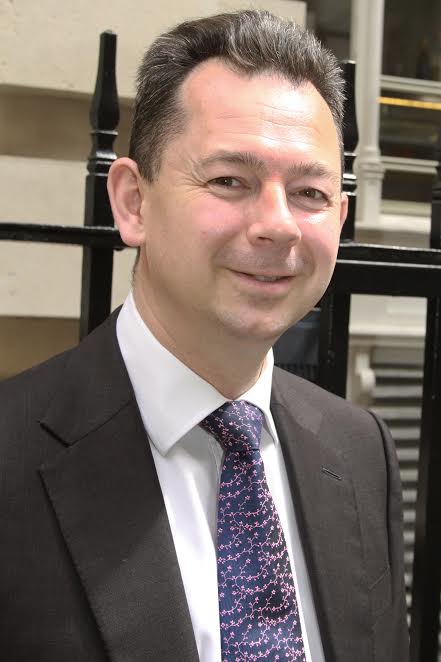The Director Public Service – Institute of Chartered Accountants in England and Wales (ICAEW’S) Ross Campbell gave the interview below on Public Finance Management in Uganda, and focused on issues regarding reforms, corruption, donors and taxation among other issues.
This was during the 4th Africa Congress of Accountants from 2nd – 5th May 2017 under the theme ‘Accountancy and Accountability: Transforming Africa’s Economies’ at Speke Resort Munyonyo.
Below are the excerpts:
What does public finance management generally entail?
At its highest level public finance management entails ensuring that public funds are spent in accordance with the public good, that this spending represents value for money and that the continued expenditure is sustainable within realistic projections of government revenue. This also requires good record keeping to ensure accountability to tax payers, effective risk management, and, critically, that future spending plans can be financed wisely which then promotes the creation of a stable economy.
What are the strong pillars that make up an effective public finance management system?
There are many pillars which support the creation and functioning of a stable and effective public finance management system. Among them are:
A strong accounting profession with qualified individuals who hold internationally recognised professional qualifications.
Robust international standards for accounting and audit to which professionals must adhere.
A strong independent audit profession which promotes transparency and accountability.
Ensuring that those holding senior management finance roles are appropriately qualified.
Creating and implementing appropriate systems and processes to guide the profession and ensure that professionals operate with integrity and accountability.
Publishing comprehensive information about public finances to promote trust in the profession.
Despite the enactment of a number of public finance management reforms since the 1990’s, Uganda continues to face many scandalous cases of misappropriation of public funds. What steps would you advise the government of Uganda to take to curb the vice of corruption altogether?
The single most important thing that any government can do to address corruption, whether in the present or the future, is to increase transparency by publishing up-to-date information which clearly and concisely presents how public funds have been used and what benefits these have resulted in for the society. This must be backed up by a strong independent audit function. In so doing, the government makes it much more difficult, if not impossible, for individuals who seek to engage in corrupt activities.
The public service has been riddled with corruption scandals mainly because of the weaknesses within financial management in government entities. What recommendations would you give to solve weak accountability that comes with soft controls and widespread corruption within the political and bureaucratic frameworks?
In order to bring in strong controls you need people who understand what such a system looks like and how it operates. Generally speaking, these are professionally qualified accountants or auditors who have successfully achieved very rigorous qualification, usually of an international standard. Moreover, these professionals will be held to standards of behaviour by the professional body with which they qualified, with disciplinary consequences if any unethical behaviour on their part has been proven. In fact, this is a key requirement to address accountability: there must be consistent and enforced controls which safeguard the integrity of the profession.
Continuous corruption in Uganda has prompted several donor agencies to suspend budget support to Uganda over the years since 2012. What advice would you give regarding attracting these donors back?
Fundamentally, these donors have to trust the system. In order to either build or regain their trust, governments who require this funding, whether in Uganda or elsewhere in the world, must bring in reforms to ensure there is strong oversight and that that system of oversight and audit is itself subject to quality checks. And the more independent that system is of government and the more it uses international standards for quality assurance and good practice, the more confidence these donors will have in it. This is the most critical way of restoring confidence and proving to these donor agencies that their support is appreciated and that their concerns are being seriously addressed.
The effectiveness of Uganda’s public finance management has also been affected partly by limited internet, infrastructure coverage, and a shortage of technical capacity expertise to operate the systems. What is your advice on improving Uganda’s public finance management?
Any system, in order to be effective, must be supported by a strong infrastructure which includes having professionals with the necessary skills and qualifications, systems that are resilient and capable of supporting the management and clear, transparent and auditable business processes. All three must be implemented together as they support each other. Having one without the others is not enough to ensure a robust public finance management system.
Citizens in Uganda continuously feel hard-pressed with taxes. How better can government of Uganda articulate the importance of paying tax to its citizens?
Again, this is a question of trust. In any society, the people must see how their taxes are being used and what benefits they are receiving. In other words, governments must justify the implementation of various forms of taxation. This is done, as mentioned earlier, through the publication of clear, concise, comprehensive, and independently audited information about public finances to promote trust in the profession and that their money will not be misappropriated. Only then will people believe in the importance of paying taxes.
Should the government of Uganda be accountable to its citizens for each expenditure? If so, how?
Yes, of course. Any government must if it wishes to build trust in the system of public financial management. The way to do it, again, is through the publication of clear, concise, comprehensive, and independently audited information regarding how funds have been used and the benefits to society.







